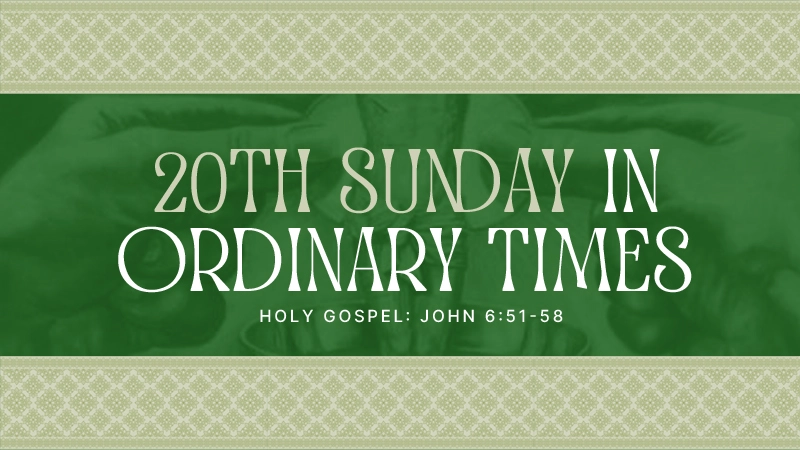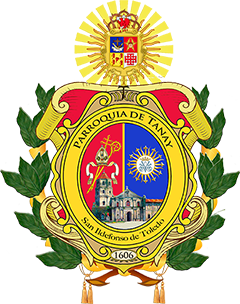Sunday Reflections | 20th Sunday in Ordinary Times
By SIDTP SoCom
Published on August 18, 2024
“Jesus said to the crowds: “I am the living bread that came down from heaven. Whoever eats this bread will live forever; and the bread that I will give is my flesh for the life of the world.” The Jews quarreled among themselves, saying, “How can this man give us his flesh to eat?”
Jesus said to them: “Amen, amen, I say to you, unless you eat the flesh of the Son of Man and drink his blood, you do not have life within you. Whoever eats my flesh and drinks my blood has eternal life, and I will raise him on the last day. For my flesh is true food, and my blood is true drink. Whoever eats my flesh and drinks my blood remains in me and I in him. Just as the living Father sent me and I have life because of the Father, so also the one who feeds on me will have life because of me. This is the bread that came down from heaven. Unlike your ancestors who ate and still died, whoever eats this bread will live forever.”
John 6:51-58 can initially seem confusing, but it holds deep significance within Catholic teachings. In these verses, Jesus declares Himself as the “living bread” that came down from heaven, stating that anyone who eats His flesh and drinks His blood will have eternal life. This statement underscores the profound connection between the Eucharist and eternal life.
For Catholics, these verses are central to the understanding of the Eucharist. Jesus’ reference to eating His flesh and drinking His blood is not meant to be taken literally but signifies the sacramental presence of Christ in the Eucharist. According to Catholic belief, during the Mass, the bread and wine become the actual body and blood of Christ through the process of transubstantiation. This belief is rooted in Jesus’ promise that partaking in this sacrament brings true life and communion with Him.
The Eucharist is more than just a ritual; it is seen as the source and summit of Christian life. It is through the Eucharist that Catholics experience a tangible connection to Jesus, receiving His grace and strength. The sacrament nourishes the soul, providing spiritual sustenance that supports and sustains the faithful in their daily lives.
The promise of eternal life in John 6:51-58 also highlights the importance of maintaining a continuous relationship with Christ. For Catholics, participating in the Eucharist regularly is a way to remain united with Christ, reinforcing their faith and commitment to His teachings. This regular communion symbolizes the living relationship between the believer and Jesus, reinforcing the belief in the transformative power of the sacrament.



